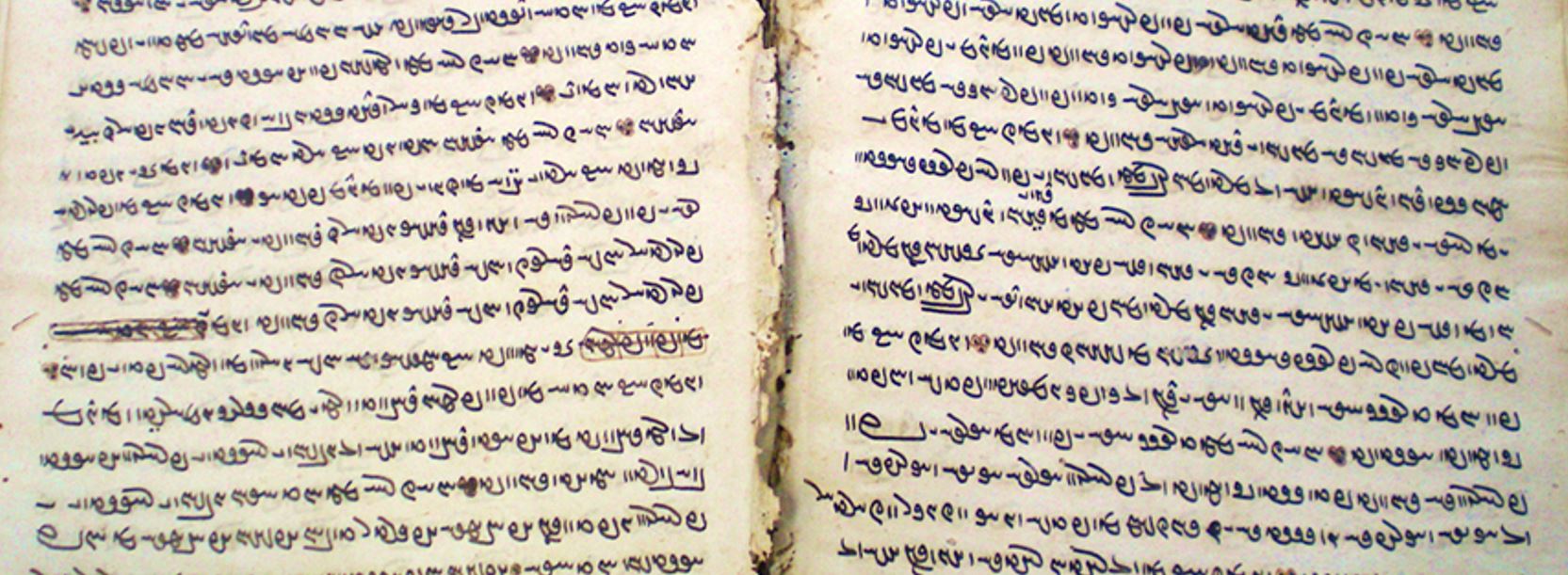

Topographies of Rhetoric and Moral Reasoning in Sasanian and Post-Sasanian Zoroastrianism
Yuhan Sohrab-Dinshaw Vevaina, directeur d'études invité.
Yuhan Sohrab-Dinshaw Vevaina, professeur d'études sassanides à l'Université d'Oxford, directeur d'études invité par Samra Azarnouche (section des Sciences religieuses) et Philip Huyse (section des Sciences historiques et philologiques) pour une série de quatre conférences : « Topographies of Rhetoric and Moral Reasoning in Sasanian and Post-Sasanian Zoroastrianis ».
These four proposed lectures are designed to both introduce and excavate the broad contours of Zoroastrian moral reasoning and religious ‘thought’ during and after the Sasanian Empire (224–651 CE). Despite 250 years of scholarship on Zoroastrianism and early Iranian Studies more generally, we still do not possess an up-to-date survey of Zoroastrian theological discourse and hermeneutics as found in the Pahlavi (Zoroastrian Middle Persian) corpus which straddles the late antique (i.e., Sasanian) and early Islamic periods in the Iranian world. A principled examination of the often opaque ‘emic’ or indigenous strategies of knowledge production is crucial for developing a more nuanced historiography of moral reasoning, rhetoric, and identity formation in the rich religious history of the early Iranian world.
Jeudi 16 mai 2024, 11-13h
The Past is a Foreign Country: Romanticisms and the Weight of ‘Tradition’
One marked feature of Pahlavi textuality is the fact that these texts explicitly claim to be inherited from the ancient Avestan texts and thus represent the culmination of the timeless sacred ‘tradition’ (Av. daēnā-; Pahl. dēn; Pers. دین). This first lecture will examine how religious discourse in Pahlavi literature gained a reflective dimension, something we can only get brief glimpses of in the more ancient Avestan mytho-ritual sources from the mid-2nd millennium BCE. It will attempt to sketch out the forms of thinking and hermeneutical modes used by the Zoroastrian priesthood to navigate their contemporary experiences in the looming shadow of an exalted yet often mysterious past.
Jeudi 23 mai 2024, 11-13h
Dispute and Difference: Disciplining Selves and Critiquing Others in a Multi-Cultural Empire
As we see in all theological regimes, the Zoroastrian priesthood in the Sasanian period attempted to taxonomise and discriminate between the various existential threats they perceived from religious minorities such as Christians (tarsāg), Jews (yahud), or Manichaeans (zandīg), or more foreign threats as represented by the hostile references to Roman-Sasanian border skirmishes and the odious presence of Greek philosophers at the Sasanian court. This second lecture will survey approaches to moral reasoning by examining Zoroastrian polemics and apologetics as instantiations of the rhetoric of boundary maintenance.
Jeudi 30 mai 2024, 11-13h
Doubt and Decision-making: The Hermeneutics of ‘Choice’ in a Dualist World (view)
In many instances in Pahlavi literature, we are ultimately dealing with notions of ‘doubt’ (Pahl. gumān[īh]; Pers. گمان), an epistemological category that lies at the forefront of Zoroastrian moral reasoning. In this third lecture, an examination of such an ‘emic’ category will allow us to view just how the Zoroastrian theologians of the late antique and early Islamic period managed contingency and reflected the historicity of decisions taken by Zoroastrians in particularly difficult moments and uncertain times.
Jeudi 6 juin 2024, 11-13h
Profit and Loss / Benefit and Harm: Cosmographies and the Teleologies of Human History
Finally, this fourth lecture will look to the future and map the ways in which the unfolding of the world was viewed by the Zoroastrian priests as foreordained and, to some extent, deterministic, while serving as the battleground for the proxy war between the metaphysical forces of good and evil. The rhetorical contours of the antonyms of ‘profit, benefit’ (sūd) and ‘loss, harm’ (zyān) within a dualistic cosmology can be seen in a cross-generic sense across several texts, thus speaking to the ultimate aim of sound moral reasoning, namely, the actuation and realisation of the final eschatological triumph of the forces of good and the concomitant defeat and cessation of evil and its effects in our world.
Les conférences seront données en anglais.
Sorbonne - 17, rue de la Sorbonne, 75005 Paris. Escalier E, 1er étage, salle D052 (Histoire), et en ligne, inscription auprès de Mme Samra Azarnouche.
Informations pratiques
Liens utiles
- iCal
- Yahoo!
- Outlook.com
Choose a calendar service :